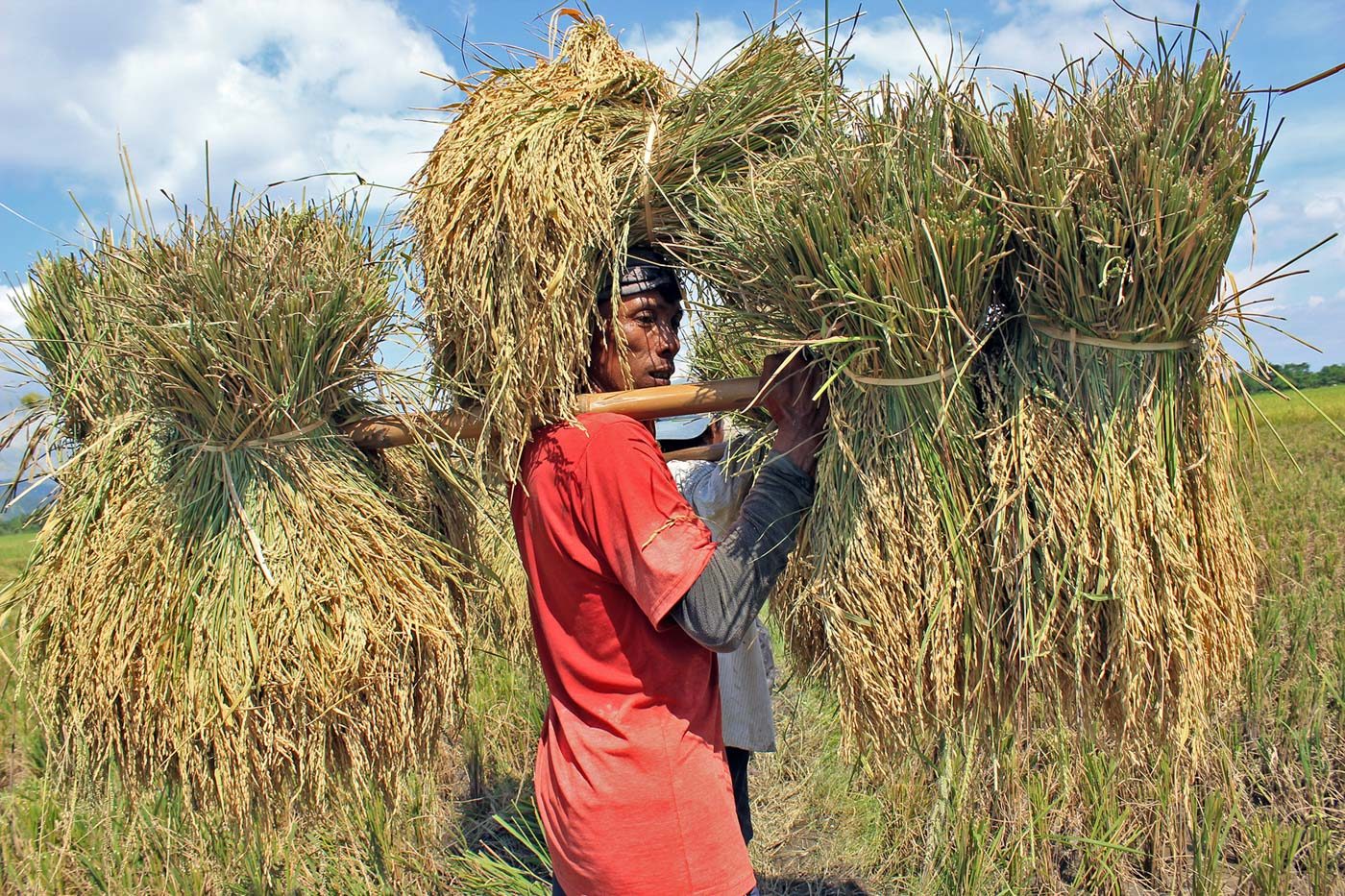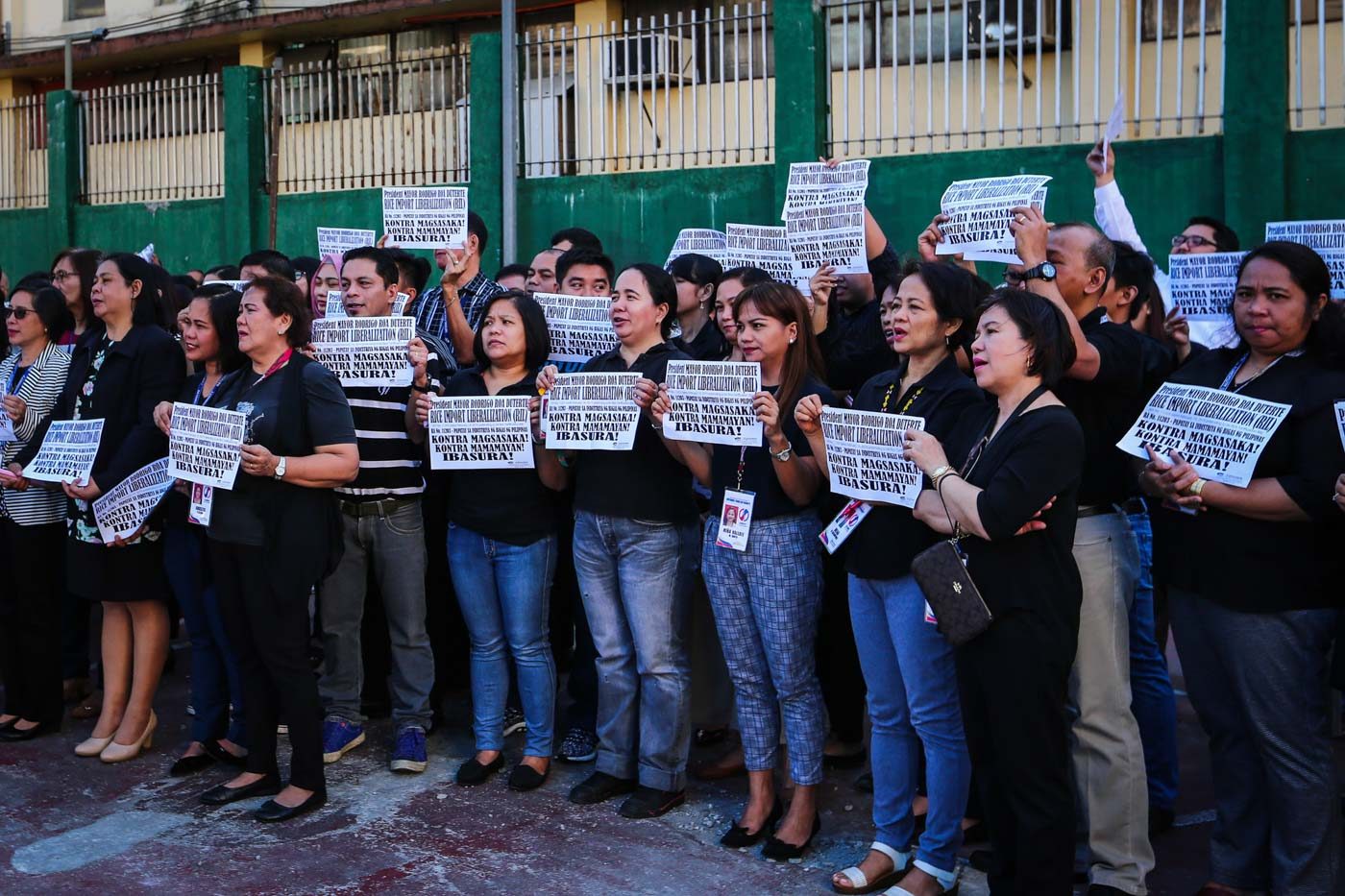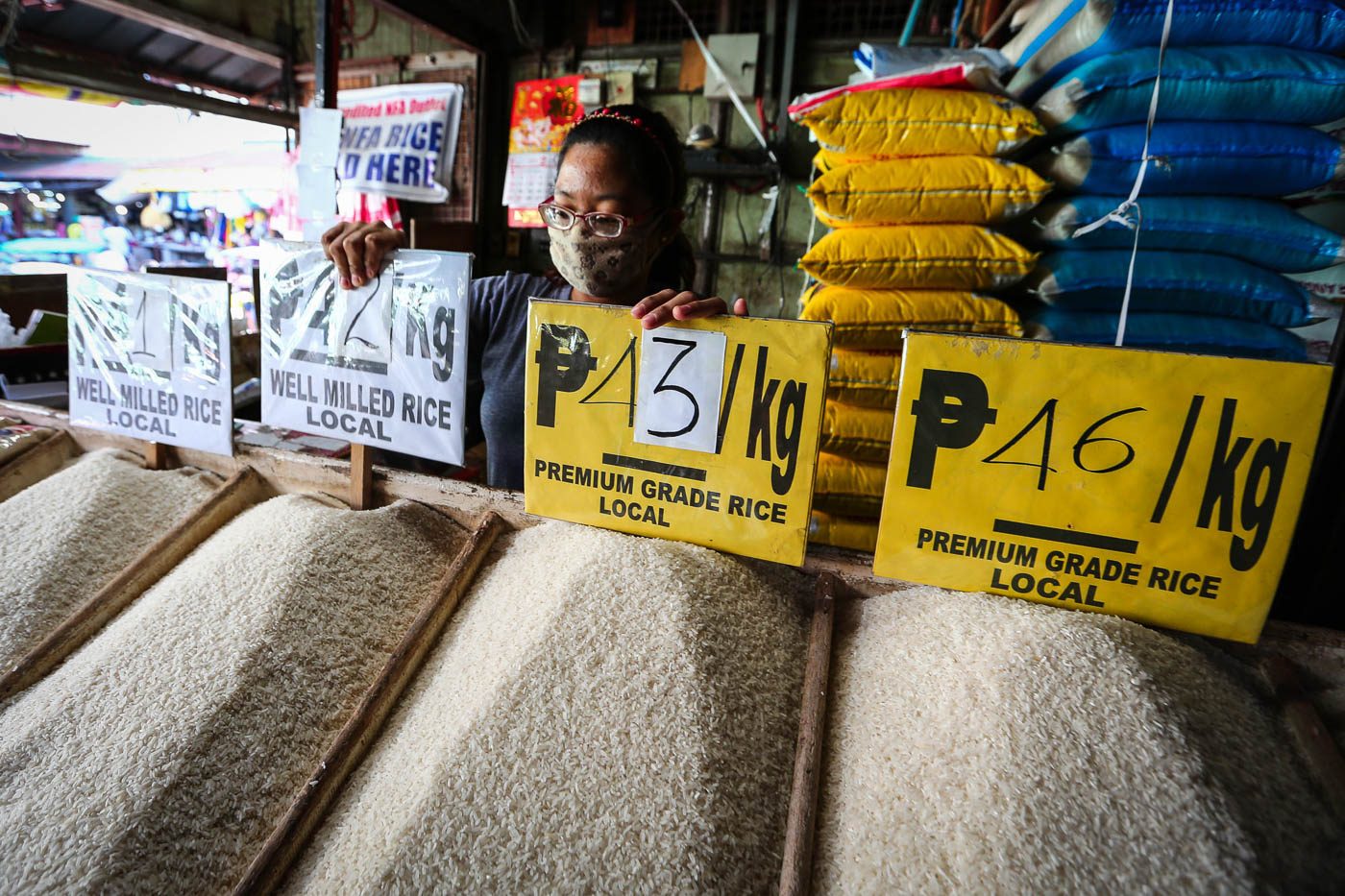SUMMARY
This is AI generated summarization, which may have errors. For context, always refer to the full article.

MANILA, Philippines – The country’s rice industry will not come to a halt so quickly after President Rodrigo Duterte signed Republic Act No. 11203 or the rice tariffication law last Thursday, February 14.
In a phone interview, Confederation of Grains Retailers Association of the Philippines Incorporated spokesperson Orly Manuntag said they will continue to operate despite the looming fear that businesses may fold up if there would be no locally sourced palay or unhusked rice.
“Even if they won’t stop operating, they will be pushed to do so. Surely, a lot will be a deficit,” Manuntag said in a mix of Filipino and English. (READ: Butterfly effect: How rice tariffication bill affects everyone)
“For now, [things may look good because] other countries have a good harvest, so they can sell their rice for cheap.”
Rice industry stakeholders were given the chance to appeal a week before the bill was set to lapse into law. This was despite the fact that Duterte had already set his mind on fully lifting quantitative restrictions on rice imports in 2018, after the National Food Authority (NFA) had experienced a drop in buffer stocks, leading to higher prices of rice in the market.
This goes against the administration’s early promise to be fully self-sufficient.
The President also had said that allowing “anyone who has money” to import and stripping the NFA of its regulatory powers can help rid of rice cartels. (READ: Progressive groups fear new tariff law will lead to rice cartels)
“Of course we farmers are saddened when President Duterte signed the law,” Philippine Farmers Advisory Board Chairperson Edwin Paraluman said in a mix of English and Filipino during a phone interview with Rappler.
“[W]e are saddened because we farmers are the ones who produce food for the country, but in the tariffication [law], we won’t fully benefit from it. If we do, it’s not enough,” he added.
Paraluman also represents the farmers’ sector in the NFA.
Asked if they will continue farming despite the odds, Paraluman answered: “Of course. We have no choice. We have to.”

NFA Deputy Administrator Tomas Escarez in a Facebook post on Sunday, February 17, said that he already wholeheartedly accepted the decision.
“In the meantime, let us continue with our work. Even as we are saddened by the unexpected turn of events, let us not fail in our duty to provide the best service to our stakeholders and countrymen,” he added.
Escarez said the NFA will continue to buy palay from farmers at P20.70 per kilogram (kg) amid the drop in farmgate prices to around P14 to P15 per kg, and sell the rice at P27 per kg through accredited NFA retail outlets.
“We [will] continue to monitor and police our grains businessmen to ensure fair trade among themselves and for all rice consumers,” he added.
Agriculture Secretary Emmanuel Piñol in a separate Facebook post explained that the drop in the buying price of palay was not because of the passage of the law. The law will take effect 15 days after its publication in the Official Gazette or in a newspaper of general circulation.
“The fall in the buying price by traders is a result of speculation fueled by the anticipated ‘flooding’ of the market with cheap, imported rice which is expected with the opening up of the market,” he added.
The Department of Finance said in a statement on Monday, February 18, that the new tariffied regime will start on March 3.
The fight continues
As the rice tariffication law may lead to the loss of jobs for the agency’s employees, Escarez said that they will “still fight for the best deal” during the drafting of the implementing rules and regulations (IRR).
However, Manuntag said that inserting safeguards in the IRR is not enough.
“The economic managers just told us that if we have any concerns, we should just put it in the IRR, but that shouldn’t be the approach here,” he added.
“Because the IRR, it can be changed. You can remove and you can add, But the law, that will still be the one that’s followed.”
Another option they’re looking at is introducing another bill that will repeal or amend the law.
“This is a big challenge. So for those who will be running — the congressmen, the senators, whether they are pro- or against the admin, this is a big challenge for them. If they are really the senator for our country, for our countrymen, they should take a look at our food security, our food safety,” Manuntag said.
Nothing to fear
In an attempt to quell further disinformation, Piñol in the same Facebook post said that the passage of the rice tariffication law does not mean the country will be flooded with rice, as there is limited supply available in the world market.
“As it is now, the volume of rice traded in the world market every year is only about 40 million metric tons of which about 38 million [metric tons] is already committed to specific non-rice producing countries,” Piñol said.

This is amid increasing world population. According to Piñol, this means that Thailand and Vietnam – the country’s traditional rice suppliers – may not be able to export rice to the Philippines a few years from now.
As a protective measure, Piñol said that the government will continue its Rice Production Program to avoid totally being dependent on imports which may get more expensive. (READ: Gov’t to support farmers amid moves to lift rice import quotas)
“The proposal by some economists that the Philippines would do better just importing rice rather than invest in its local rice production program is a short-sighted perspective,” Piñol added.
“If this view prevails, the Philippines will face a real rice crisis a few years from now with sky-high prices which the poor cannot afford.” (READ: History of Rice Crisis in the Philippines)
Another safeguard found in the rice tariffication law is the Rice Competitiveness Enhancement Fund which will provide the rice industry P10 billion to improve crop production. This will come from the tariffs and duties collected from imported rice. (READ: Robredo on rice tariffication law: Ensure ‘safety nets’ for farmers)
Under the ASEAN Trade in Goods Agreement, rice imports coming from the country’s Southeast Asian neighbors will have an import duty of 35%, while rice imports coming from non-ASEAN countries will be set higher.
“Properly used, the RCEF could actually increase the productivity of Filipino rice farmers because farm mechanization alone will increase production efficiency and reduce post-harvest losses estimated at 16% of total production,” Piñol said. – Rappler.com
Add a comment
How does this make you feel?
There are no comments yet. Add your comment to start the conversation.